The Australian Government is now in caretaker period. During this time, updates on this website will be published in accordance with the Guidance on Caretaker Conventions, until after the election.
Latest news and stories
NHMRC Media
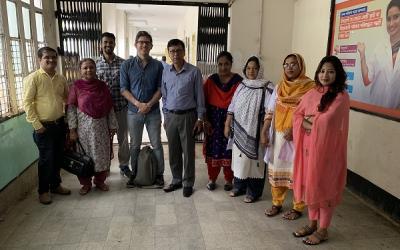
Working beyond our own borders for a better world
Associate Professor Joshua Vogel is a Principal Research Fellow at the Burnet Institute in Melbourne, where he co-heads the Global Women’s and Newborn’s Health Group. His research focuses on addressing maternal and perinatal health issues affecting women and families in limited-resource settings. Associate Professor Vogel was the winner of the 2020 Peter Doherty Investigator Grant Award, and the Commonwealth Health Minister’s Award for Excellence in Health and Medical Research.
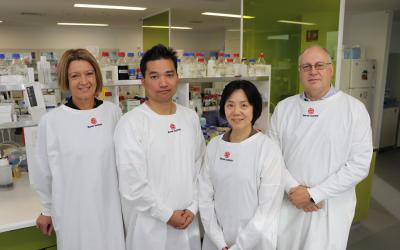
Australian research delivers rapid Hep B test for earlier treatment
Hepatitis B is an infectious disease that causes the liver to become inflamed and contributes to increasing rates of liver cancer in Australia and globally.
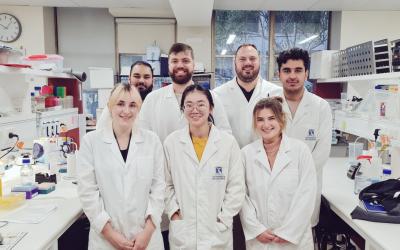
Getting to the cause of type 2 diabetes
The daily burden of living with diabetes can be significant. It’s estimated that people with diabetes face up to 180 diabetes-related decisions every day. That’s more than 65,000 extra decisions a year. These decisions can range from managing daily blood sugar levels, food intake and exercise to the management of serious diabetes complications.

Driven to improve mental health and intergenerational trauma through research
Having experienced 2 Indigenous internships with NHMRC, Vernon Armstrong has now started his journey in mental health research.
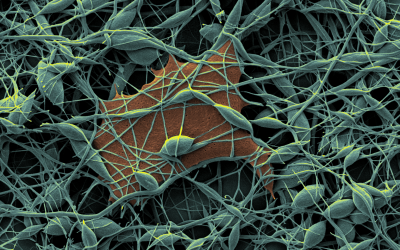
Diamond-enriched silk dressings the answer to next-generation smart wound treatment
A diamond-enriched smart dressing made of silk that enables doctors to read the chemistry of an infected or healing wound could be the answer to more effective therapies, particularly for burns.

Addressing Australia’s national transfusion research priorities
Professor Erica Wood is head of the Transfusion Unit at Monash University. Her research describes how blood is used in Australia, and how its use can be improved and made safer and more cost-effective. Through registry data and clinical trials, and studies of novel blood products, Professor Wood and her team aim to improve access and transfusion outcomes for patients.
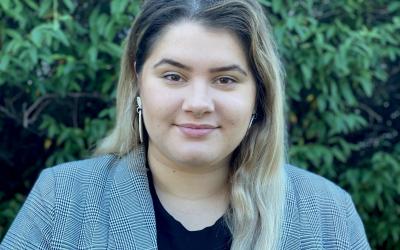
Indigenous female researcher inspires next generation
As one of NHMRC’s first Indigenous Interns, Nada Powell is about to embark on her next journey which is likely to now include research.
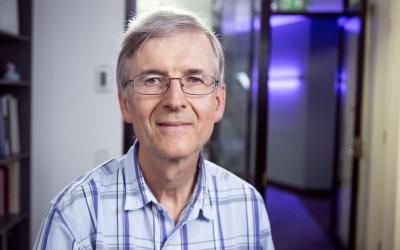
Unlocking the secrets of the brain
Professor John Bekkers from the John Curtin School of Medical Research and his team are currently working on the neurons and circuits in the brain that underlie the sense of smell. His team focus on the olfactory cortex, a brain region that is responsible for our ability to recognise and remember odours.
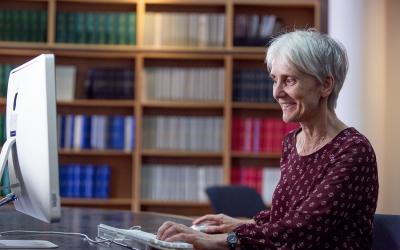
Partnership with Aboriginal communities for a meaningful contribution
Professor Kate Conigrave from The University of Sydney is an Addiction Medicine Specialist and Public Health Physician based at Royal Prince Alfred Hospital. Her work combines treating individuals with alcohol, drug and tobacco problems, promoting the health of communities and research and teaching. She is currently the chair of the National Health and Medical Research Council's (NHMRC) Alcohol Working Group, which is charged with reviewing the guidelines to reduce the health risks from drinking alcohol.

Breathing easy – Improving access to respiratory disease rehabilitation
The average adult takes up to 20 breaths every minute, something most people give little thought. However, breathing can be a daily struggle for people with Chronic Obstructive Pulmonary Disease (COPD),an umbrella term for a group of lung conditions that includes emphysema, chronic bronchitis and chronic asthma.

Australia’s investment in eradicating malaria
Over the last 10 years NHMRC has invested more than $191 million in research on malaria1
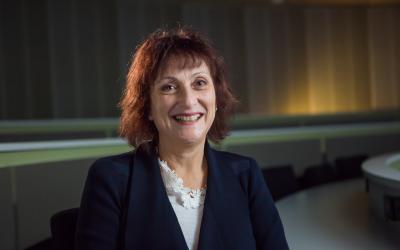
Ensuring evidence is translated into practice
Professor Rachelle Buchbinder is a National Health and Medical Research Council (NHMRC) Senior Principal Research Fellow. She is the Director and Professor in the Monash University Department of Epidemiology & Preventive Medicine since 2007. Professor Rachelle Buchbinder's clinical practice is in conjunction with research involving multidisciplinary projects relating to arthritis and musculoskeletal condition.
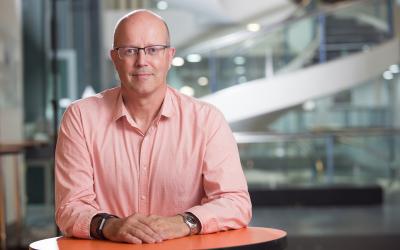
Working to stop Parkinson's disease
Associate Professor Antony Cooper from the Garvan Institute of Medical Research is a cell and molecular biologist / geneticist with strong interests in elucidating how cellular dysfunction results in human diseases, with a specific interest in neurodegenerative disease such as Parkinson’s Disease. His research on neurodegenerative diseases focuses on understanding the basis of Parkinson’s Disease. Watch his story in the video below.
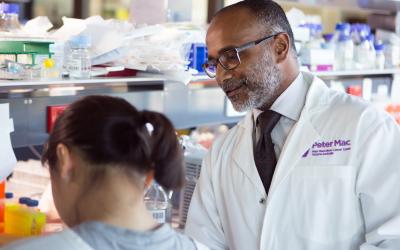
Transforming how to treat blood cancers
Professor Mark Dawson is a clinician-scientist at the Peter MacCallum Cancer Centre, meaning he both treats blood cancer patients and leads cutting-edge cancer research in the lab. After working as a doctor for some time, Professor Dawson wanted to know why some patients responded better to treatment than others.

CEO communique on application centric peer review
CEO Communique, February 2021
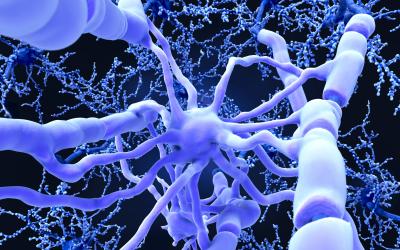
Adding new cells to the mature central nervous system – Investigating their normal function and potential for repair
For people with Multiple Sclerosis (MS), the myelin that covers nerve fibres in the central nervous system (brain, optic nerves and spinal cord) is damaged, leading to impairment of cognitive, motor and sometimes sensory functions.

COVID-3D: A small leap to scale up to COVID-19
Early in 2020, the University of Melbourne’s Bio21 team was working on protein modelling to better understand antimicrobial resistance for improved drug development. In March they turned their attention to the SARS-CoV-2 virus, which had already undergone many mutations. In September, the team’s work was published in Nature Genetics.

Improving the health and wellbeing of children by making it easy to be active throughout the day
Professor Jo Salmon from the Institute for Physical Activity and Nutrition (IPAN), Deakin University received the Elizabeth Blackburn Investigator Grant Award at last year’s NHMRC Research Excellence Awards. Her research focuses on how to effectively implement physical activity interventions at scale across the population, particularly in children. Physical inactivity is a leading modifiable risk factor for childhood obesity and other physical and mental health conditions.

'10 of the Best': Showcasing health and medical research success stories
Australia’s National Health and Medical Research Council (NHMRC) has launched the 12th edition of 10 of the Best, showcasing significant projects that support the improvement of human health.
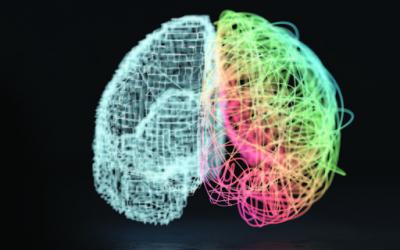
Case study: Neurodegenerative disease and metals
The formation of abnormal proteins in the brain has long been suspected to contribute to the development of Alzheimer’s disease and other neurodegenerative diseases. Yet many individuals with abnormal protein formations do not go on to develop such diseases.

Australian Partnership for Preparedness Research on Infectious Disease Emergencies
APPRISE is the Australian Partnership for Preparedness Research on Infectious Disease Emergencies. It was established in 2016 with an investment of $5 million funded by NHMRC and an additional $2 million in 2020 to undertake a range of studies to inform the public health and clinical responses to the COVID-19 outbreak.
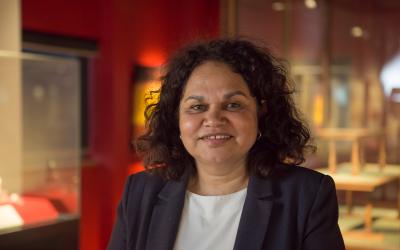
Linking high quality international research for improvements in Indigenous health
Professor Sandra Eades from Curtin University has dedicated her career to research in Aboriginal health improvements. Professor Eades works with National Health and Medical Research Council (NHMRC) to advise and develop strategic guidelines focused on closing the gap.

Repairing the nervous system with patients’ own stem cells
Associate Professor James St John from Griffith University received the Marshall and Warren Innovation Award at the 2020 NHMRC Research Excellence Awards. His research involves the development of cell transplantation therapies to repair the nervous system, particularly peripheral nerve and spinal cord injuries.

NHMRC Dementia Research News
The National Health and Medical Research Council (NHMRC) remains committed to supporting dementia research in Australia following the end of the Australian Government's Boosting Dementia Research Initiative (BDRI).
Improving kidney health for Aboriginal and Torres Strait Islander people
Associate Professor Jaqui Hughes from the Menzies School of Health Research received the 2019 NHMRC Clinical Trials and Cohort Studies Award at NHMRC’s Research Excellence Awards ceremony in March 2020. Kidney disease is a significant health priority among Aboriginal and Torres Strait Islander communities. The cohort study being led by A/Professor Hughes will describe the long-term changes in kidney function over 10 years. This will provide critical data to inform regional and national policy on identification and care of people with kidney disease.

Using big data to improve people's health
Professor Louisa Jorm is the Foundation Director of the Centre for Big Data Research in Health at UNSW Sydney.
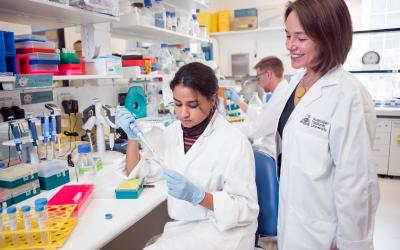
Blue sky impacts for human health
Professor Carola Vinuesa is a Professor of Immunology at the Australian National University and Head of the Pathogens and Immunity Department. She discusses Cellular Immunology and how blue sky research impacts human health.
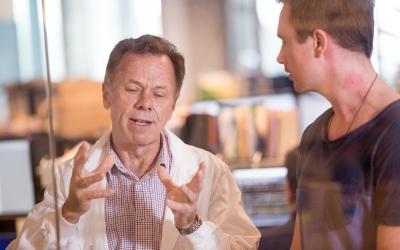
Vaccine development and prevention strategies for Hepatitis C
NHMRC caught up with Professor Andrew Lloyd from The University of New South Wales who develops vaccines for Hepatitis C, which effects 750,000 Australians. Find out how his research is not only helping treat Hepatitis C but working on prevention strategies.
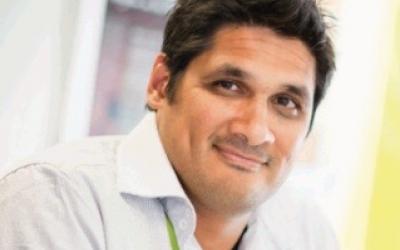
Aboriginal mental health research and the importance of resilience
Developing better understanding of effective therapeutic practices with Aboriginal clients, in Aboriginal community settings, and with Aboriginal practitioners, across the spectrum of mental health and social and emotional wellbeing outcomes is the goal of Dr Graham Gee.
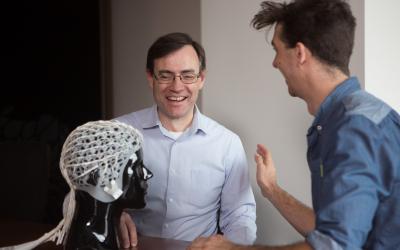
Peoples lives transformed through bionics
Professor David Grayden is in the department of biomedical engineering at the University of Melbourne. He has undertaken successful innovation and a commercialisation journey, providing practical insights into how he navigates through this research pathway.

Fellowship contributing to Australian health
Prof Si Ming Man from The Australian National University and his team investigates the role of innate immunity in infectious diseases and cancer. Professor Man received the NHMRC Research Excellence Award for the highest-ranked Early Career Fellowship (2015) and an NHMRC Research Excellence Award for the highest-ranked Career Development Fellowship Biomedical Level l1 (2019). He also received the 2019 Commonwealth Health Minister's Medal for Excellence in Health and Medical Research and the 2021 CSL Centenary Fellowship.

Boosting study in auto immune disease
Professor Joanne Reed from the Garvan Institute's research focuses on autoimmune diseases, particularly the origin and role of autoantibodies. 'It's really promising research and NHMRC has been able to fund this. This is something that's capable of having a big impact'. Watch her story in the video below.
Could an antiseptic mouthwash reduce sexually transmitted infections and improve the sex life of Australians?
The 2020 Commonwealth Health Minister's Award for Excellence in Health and Medical Research has been awarded to Associate Professor Eric Chow of Monash University. The award has been presented each year since 2000 and recognises the top-ranked recipient of a NHMRC Investigator Grant in the Emerging Leadership Level 2 category from the previous year’s application round.
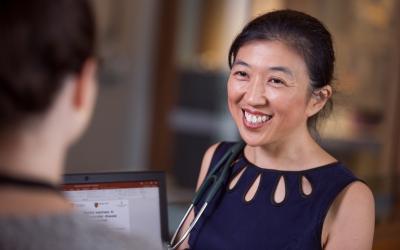
Focus on cardiovascular disease prevention
Dr Clara Chow is Professor of Medicine, Faculty of Medicine and Health, Academic Director of the Westmead Applied Research Centre and Academic Co-Director of CPC Westmead. She is a National Health and Medical Research Council (NHMRC) Investigator Grant Leadership awardee and with this leads a research program focused on innovation for health service provision and clinical management of cardiovascular disease prevention. Professor Clara Chow shares her research on cardiovascular disease prevention.
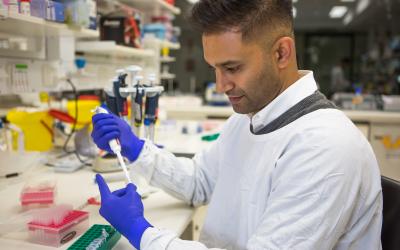
Motivated to repair insulating system of the brain
Dr David Gonsalvez heads up a laboratory focused on how glia, the non-neuronal cells in the brain and spinal cord, develop, contribute to neuronal plasticity and respond following injury. David’s lab also focuses on identifying therapeutic targets that may promote the repair of the nervous system in autoimmune diseases such as Multiple Sclerosis (MS).
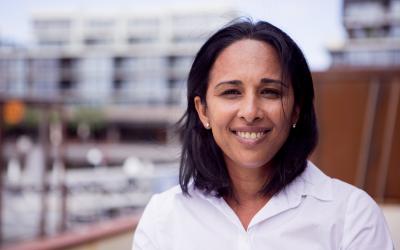
Talented women can keep pursuing their research
'What I really like about the NHMRC system is that it is a fantastic scheme for women in science.' Professor Sudha Rao discusses her research into how T cells (or immune cells) regulate themselves when looking at breast cancer.
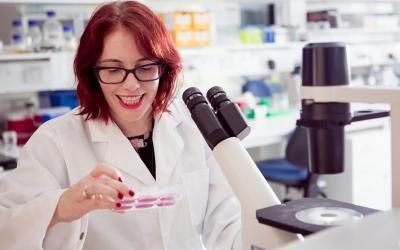
Using a fly to understand cancer genetics and biology
In 2016 Associate Professor Leonie Quinn relocated to The John Curtin School of Medical Research (ANU, Canberra) to establish the Quinn Group - Cancer Models in the ACRF Department of Cancer Biology and Therapeutics. Associate Professor Quinn is trying to understand how brain cancer develops by using a genetic model through a fly. She hopes to use this information to develop new treatments.
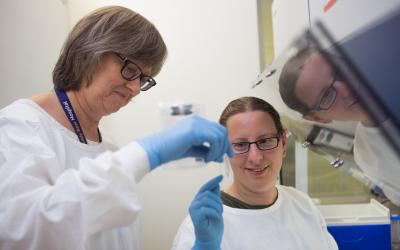
Game changer through a new vaccine for Rotavirus
Professor Julie Bines from Murdoch Children's Research Institute is doing some inspiring work, developing the RV3-BB rotavirus vaccine. 'Funding for this research from the very early days has become very critical and NHMRC has provided much of that critical funding through the course of this project'. Listen to Professor Bines' story below.
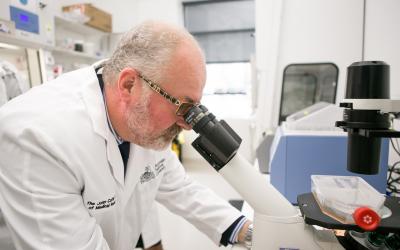
Professor Ross Hannan: Detective in cancer research
Professor Hannan from the John Curtin School of Medical Research is an internationally recognised laboratory scientist, whose work on ribosome biogenesis has led to new treatment paradigms in cancer, centred on drugs that activate nucleolar stress. Professor Ross Hannan is a great detective of cancer research—finding and developing new cancer treatments for patients. Watch his story in the video below.
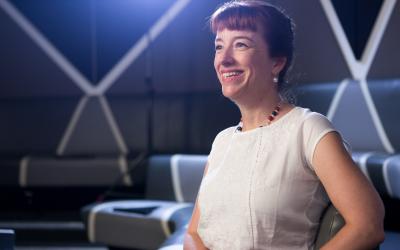
Difference in research through prevention with Professor Emily Banks
Professor Emily Banks is focused on those unanswered questions around prevention to really make a difference.

Leveraging gluten challenge in coeliac disease to improve its diagnosis
Coeliac disease is a common autoimmune-like illness caused by gluten. The condition affects over 350,000 Australians, causing substantial morbidity, impaired quality of life and increased health care costs.

Research aims to make glaucoma treatment easier and more effective
Glaucoma is a leading cause of irreversible blindness worldwide, with an estimated 80 million people predicted to be affected by 2020.
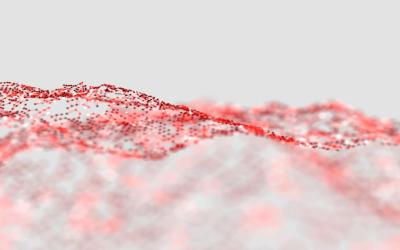
Delivering safe and effective medication management technology
Medication errors are widely recognised as a major cause of preventable harm and death worldwide, annually costing some $42B globally and $1.28B in Australia.

Improving stroke care in regional and rural Australia
In Australia, there is an excess burden of stroke in regional and rural areas and patients do not have the same access to specialised care as in metropolitan areas.

Healthcare key to bridging determinants of health
'Capacity development is something I’m really passionate about and there is definitely a need for it' - Dr Odette Pearson.
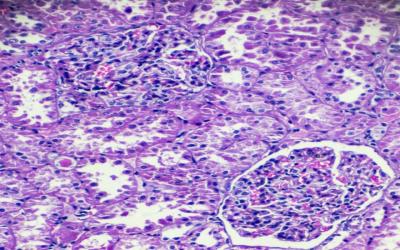
Kidney disease - reporting the right outcomes
An estimated 1 in 10 Australian adults (10%) - about 1.7 million people in 2011 - 12 - had biomedical signs of chronic kidney disease1
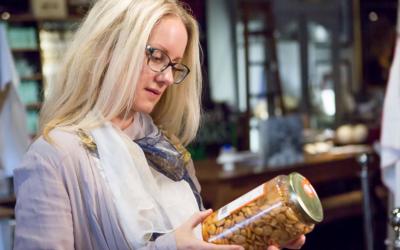
What is actually contained in our foods?
Dietary change is a significant lifestyle factor in managing the epidemics of obesity and diabetes. Uncovering the details of effective dietary change requires accurate user friendly dietary assessment and advice tools.
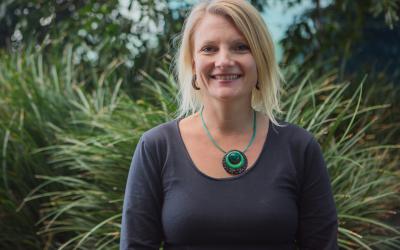
Music provides strong connections for people with dementia
Doctor Tamplim is using therapeutic singing groups to support people living with dementia. Music is the glue that brings people together and it’s cementing and supporting existing relationships.
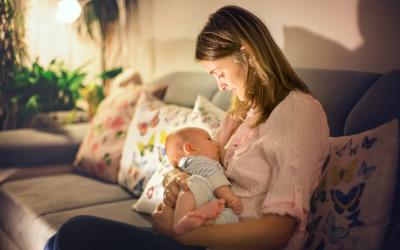
Supporting women to breastfeed
Breastfeeding infants exclusively to around six months, and continuing up to 12 months and beyond as solids foods are introduced, provides clear benefits for both the infant and the mother. Supporting women to continue to breastfeed is key to improving rates of breastfeeding.

New technology to spot skin cancer sooner
‘Melanoma is the most common cancer for 15-39 year old Australians—with the highest ‘years of life lost’ of any cancer’1
